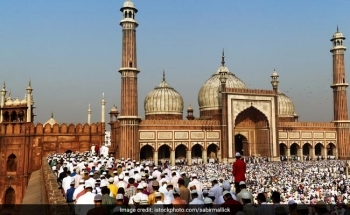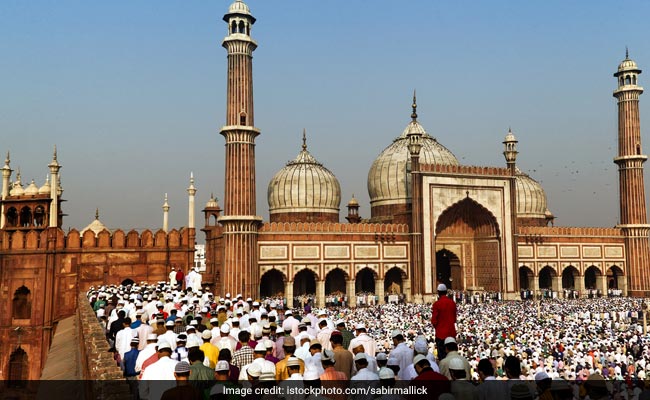
.jpg) Prof. M. Aslam
Prof. M. Aslam

The month of ‘Ramadan fasting’ has just begun. Fasting in one form or the other does exist in almost all the religions. We have ‘Navaratra fasting’ for nine days among Hindus running side by side. What I have been observing over the years is that there is lack of understanding among people from different religions about the essence of such fasting and we are carried away more by the festivities and rituals. In the process we lose the essence of these mandatory religious fasting. It is, therefore, necessary that we highlight the essence of fasting to help people understand and appreciate such practices.
Essence of Ramadan Fasting
Ramadan fasting or Roza as practiced by Muslims is an elaborate process stretching over a period of one month every year. Basically, it provides an opportunity for believers to reinforce their faith in Almighty through the process of self-purification. It means that a person observing fast will not only observe abstinence from eating and drinking but will get into a sublime state of mind in order to develop positive feelings. To achieve this one has to restrain oneself from listening, speaking, hearing or thinking negatively about others.
The Holy Qur’an says,
“O ye who believe! Fasting is prescribed to you
as it was prescribed to those before you, that ye
may (learn) self-restraint.”
It implies that fasting is also prescribed to strengthen self-control. Perhaps one needs to experience Ramadan to understand it. As Michael Wolfe in his column “Armouring the Heart” says: “My first Ramadan fasting taught me self-control and empathy.” Perhaps he rightly experienced the virtues of Ramadan and expressed them in the following words, “From feelings deprived, you come to feel empowered by your ability to shake off the promptings of appetite. From thinking how slowly the time is passing, you move along, as the fast progresses to not watching the clock. You may take a larger interest in the minutes right around sunset, but the rest of the day drifts along, once you are in the swing and time as a social habit loses some of its importance. Indeed, Ramadan stands time on its head”.
It also instils moral courage and guides the seat of our emotions on moral issues. Since fasting helps in conditioning the heart, soul and body, it leads to tranquillity and calmness in the face of adversity. This helps one become patient. Patience is the pinnacle of discipline and spiritual suppleness. Jalaluddin Rumi said: 'Have patience, for that is true worship'.
Process of Self-purification
One of the objectives of Ramadan fasting is to facilitate its followers to undergo an elaborate process of self-purification. This month-long fasting is expected to mould the behaviour and pattern of life of its practitioners in such a way that they turn out to be ideal human beings. It essentially means that a person observing fast will not only keep abstinence from eating and drinking but will get into a sublime state of mind in order to develop positive feelings.
In order to achieve this one has to restrain oneself from listening, speaking, hearing or thinking bad about others. The expectation is that if one passes through this process of self-purification for a period of one month, its impact will at least last for the remaining 11 months, when this process will be repeated. Unfortunately, we take it as physical fasting only and do not achieve what is expected of this process of purification.
Social Significance
Sociologically speaking, fasting is an ex
Charity includes helping the poor through giving of alms. It is said that if one gives away even a small amount during this month, he will get 70 times more blessings in return. We should also take care not to forget the social significance of iftar gatherings basically meant to feed those who otherwise cannot afford to do so. What we observe in these Iftar parties particularly in the national Capital is that they turn out to be more political maneuvering than serving poor, who are hardly invited.
Zakat
A Muslim is also expected to take stock of his personal wealth, both cash and kind, and calculate ‘zakat’ that is to be earmarked for distribution among the poor and needy. It requires you to give 2.5% of your wealth to those in need. In return Allah is expected to safeguard your wealth and property. What a wonderful scheme to bring about social justice. If all the rich and well-to-do Muslim families perform this act faithfully and with sincerity, there will be no destitute around.
The practice of the concept of neighbourhood is equally important. It has wider connotations than its literal meaning. The Prophet (SAW) had said, “One should behave decently with the whole of humanity and foremost among them is your neighbour.” If one connects it with the concept of fasting, an immediate implication is that a true Muslim cannot see any human being hungry, even if it means having to sacrifice once ‘Iftar’ and to continue fasting for the next day without taking any food. Similarly, a true Muslim cannot see a human being in pain or misery. It applies to both one’s immediate neighbourhood as well as entire humanity. What we are witnessing around us in the name of Islam is not Islam. In essence, Islam in general and ‘Roza’ in particular teaches a person to address human concerns and values.
One of the greatest advantages of fasting is that “its true observance is expected to inculcate in a person a habit of speaking the truth.” The Prophet (SAW) said: “Say what is True, although it may be bitter or displeasing to people.” If a person speaks the truth, practices the concept of hospitality and neighborhood and gives charity as prescribed, he/she will not only become an ideal human being, but will certainly be entitled for God’s blessings and protection which all of us so desperately need in these turbulent times.
(The writer is a Sociologist and has served as Vice-Chancellor of IGNOU. He can be reached at: profaslam10@gmail.com)